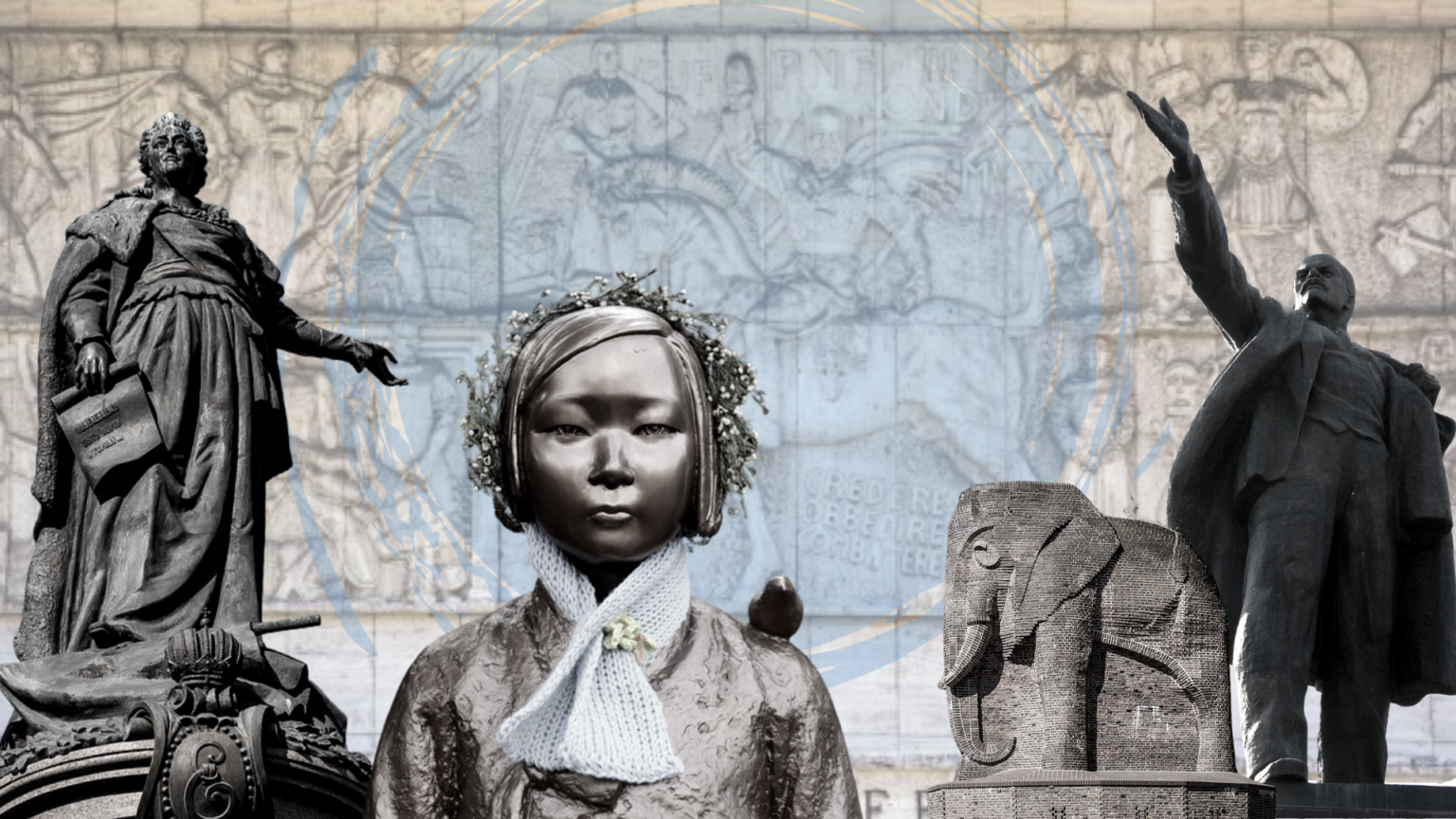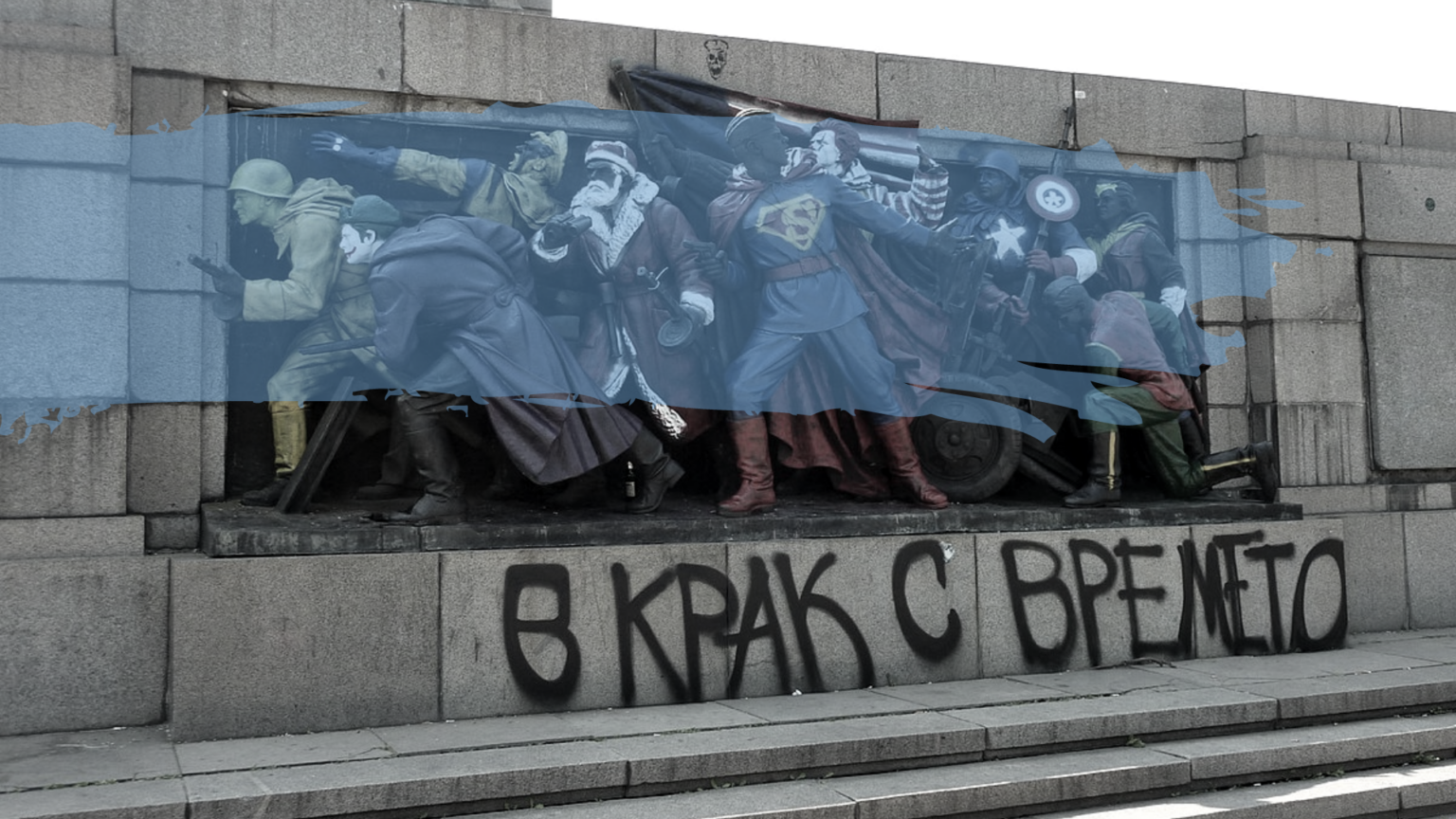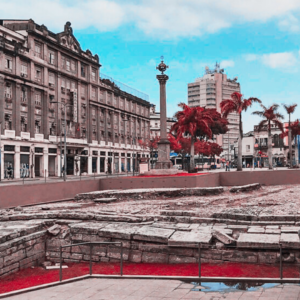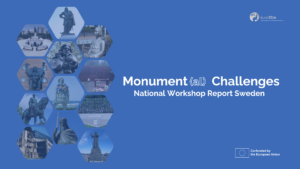
To unite or divide?
The Contested Histories Initiative studies disputes over statues, street names, and other historical legacies in public spaces with an aim to identify principles, processes and best practices for decision-makers, civil society advocates, and educators confronting the complexities of divisive historical memory.
Explore
Digital Map
You can now explore the Contested Histories Digital Map.
The map enables you to explore our database, which comprises over 600 case studies spanning 134 countries worldwide. It shows various heritage sites, monuments, buildings, and places that have been contested or debated due to their historical or cultural significance.
Explore
Artistic Intervention
An effective remedy to a controversial statue or monument. Explore more remedies by clicking the button below.
Explore
Critical History Tours
The ‘Critical History Tours’ project is a dynamic, multi-partner initiative designed to create and promote successful critical history walking tours across European countries. This innovative program engages with tension tied to historical debates in modern societies, focusing on how these debates manifest in public spaces, particularly in contested urban areas.
Explore
Monument(al) Challenges
School classrooms across Europe are continuing to become more and more diverse. At the same time, controversies over contested historical legacies in public spaces across the world have increasingly led to contestations over cultural heritage and conflicts over the interpretation of national histories. Monument(al) Challenges aims to respond to some of the challenges faced by educators across Europe in teaching history. Specifically, we aim to address teachers’ requirements for resources and training materials which equip them with the skills for discussing sensitive and complex histories, including colonialism and slavery, in their classrooms.
ExploreStatues, monuments, street names, and other markers project a collective historical memory on public spaces. Inclusive societies need commemorative landscapes that reflect the collective nature and values of the communities they serve.
The Contested Histories Initiative seeks practical remedies to contestations over historical markers in public spaces as part of broader efforts to create more inclusive and equitable societies, particularly for and with communities that have been marginalised or disenfranchised due to race, ethnicity, gender, or other affiliations.
Featured Cases
Featured Cases
FAQs
What do the #’s mean?
The #’s are unique identifiers for our Case Studies. As a case is identified and added to our Cases List, it is assigned a number. Stories and Resources relating to a case are also tagged with the Case #.
Can I download the Cases List?
Yes! Click ‘Map’ in the menu and scroll down. You can fill out a form to download the Cases List.
I know of a case that is not on your list, how can it be added?
Submit potential new cases using the contact form on the Get Involved page. Remember to also share a news article and image if available.
What is the purpose of this project?
To study disputes over statues, street names, and other historical legacies in public spaces with an aim to identify principles, processes and best practices for decision-makers, civil society advocates, and educators confronting the complexities of divisive historical memory.









